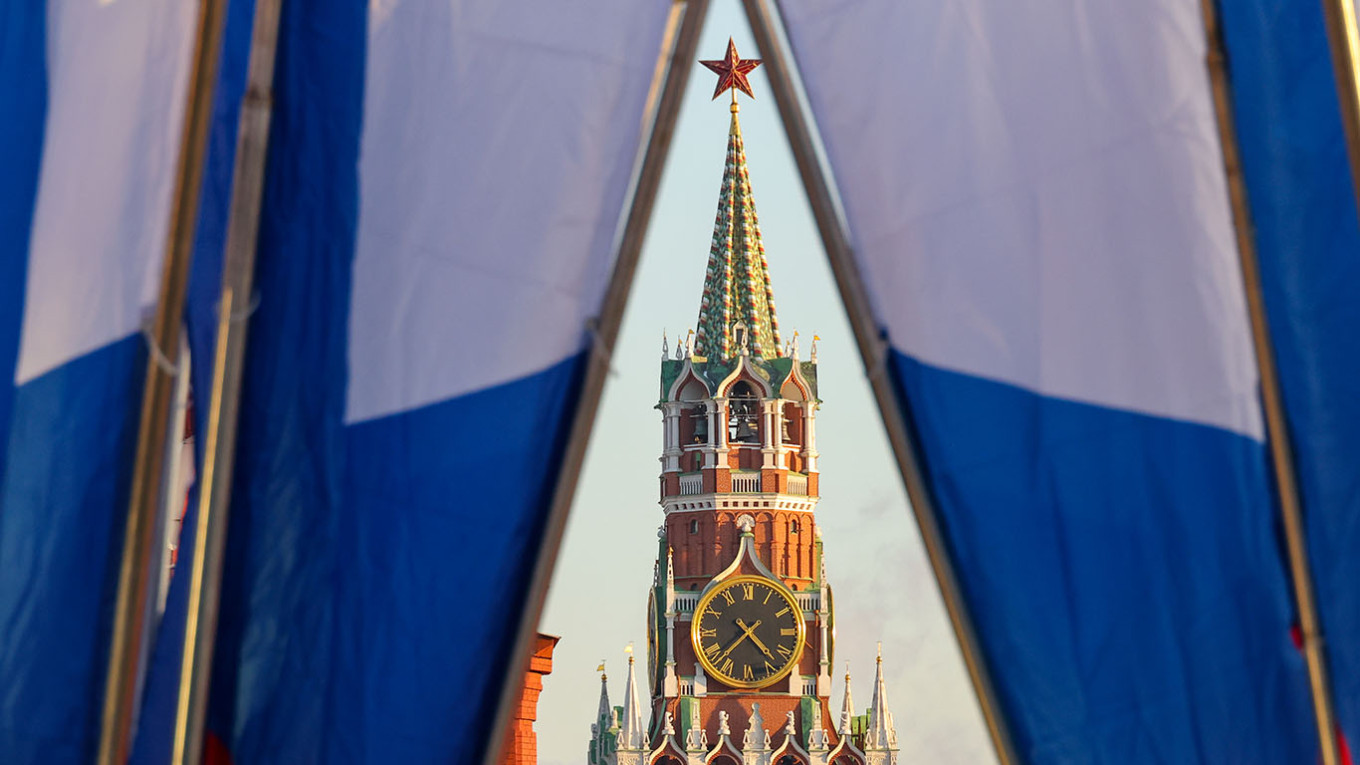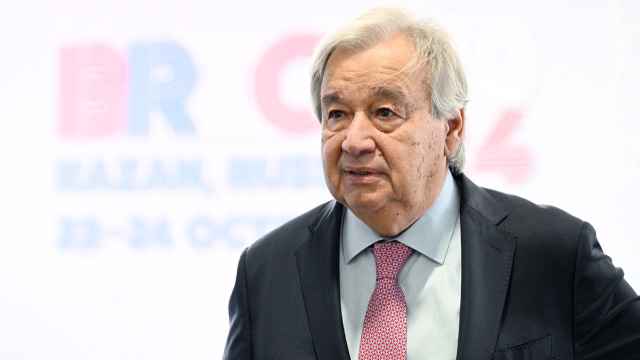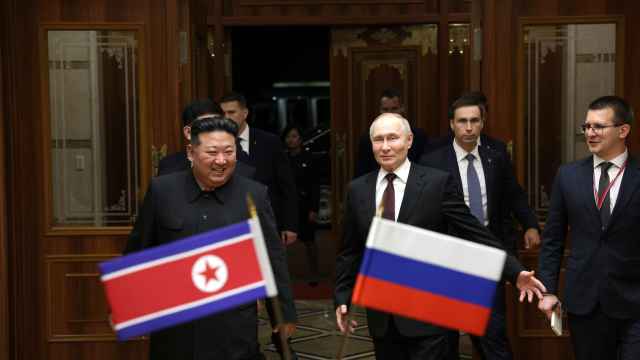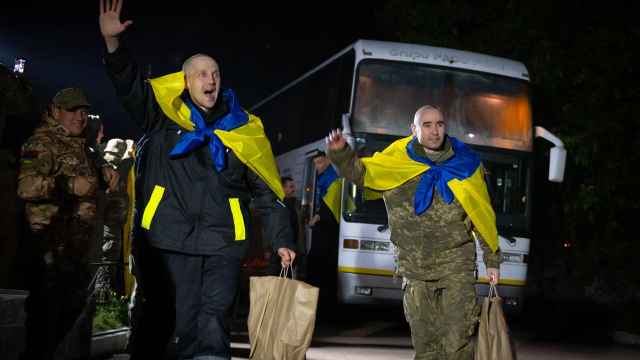Today’s Russia is not merely violating international law — it is openly dismantling its very architecture. Nearly 10,000 individuals have brought cases against the Kremlin and Europe’s top human rights court recently ruled that Russia violated international law in Ukraine.
These rulings have the power to be more than symbolic. Yes, the Kremlin has withdrawn from many international legal institutions and is blatantly ignoring the treaties to which it still belongs. But there is still a lever that can be pulled to impose real consequences for Moscow.
There is evidence that Russia fully understands that it cannot completely ignore international legal norms without consequences. That is why the Kremlin officially demands the cancellation of reparations and war-related payments for Ukraine, as well as the lifting of all sanctions imposed on the country in connection with its war against Ukraine.
But still, Moscow continues its legal nihilism. This poses the challenge of how the international community should respond to a nuclear power that rejects any legal obligation that does not serve its interests. This question extends far beyond Ukraine or internal repression. It threatens the very foundations of the international order — a system based on obligations, accountability and universally accepted human rights principles.
The strategic goal of holding Russia to account should be eventual regime change and the democratization of the country.
Coercion works slowly. The tactical goal today must be the implementation of gradual measures that, even against the will of the current regime, could partially or fully contribute to restoring the status of human rights, especially where independent institutions have proved such violations or are plainly evident.
I personally know dozens of Russians — former political prisoners, activists and victims of police violence — whose cases were ruled on in Strasbourg, with Russia found guilty. These individuals have not had their names cleared, received compensation for their suffering, nor received official recognition of the injustice they endured. Russia has not only refused to implement these decisions but has also blocked any domestic path to legal rehabilitation.
A path to achieving justice would be to funnel frozen Russian assets held abroad into a compensation fund from which victims can receive the restitution the ECHR says they are owed. Kremlin officials have already threatened a “severe” response if these assets are seized, which shows that the Kremlin views them as sufficiently important that they could be used to put pressure on the leadership.
Compelling Russia to implement ECHR rulings is not about vengeance. It is about restoring justice, protecting the international legal order, and sending a clear message: authoritarian states cannot violate human rights with impunity.
Russia remains a formal party to many international treaties, from the UN Charter to the International Convention on the Elimination of All Forms of Racial Discrimination. However, in recent years, it has deliberately stopped complying with these norms.
If the international community chooses to ignore Russia’s violations, it will send a dangerous signal that authoritarian regimes can break the rules with impunity.
Having withdrawn from the Council of Europe and jurisdiction of the European Court of Human Rights, Russian authorities are promoting an alternative model of international order, one in which a “sovereign right to suppress internal conflicts” and non-interference take precedence. The Kremlin’s alliances with China, Iran, North Korea and other authoritarian regimes are being built on this foundation, showing that Moscow is trying to build an alternative to the current rules-based order.
When Israeli bombs struck targets in Iran, the Islamic Republic’s leadership was quick to invoke international law. It might seem ironic, given Iran’s own blatant human rights abuses. But this only proves the point that even authoritarian regimes remain aware of the potential for international law to bring accountability.
In these circumstances, compelling Russia to comply is not merely about confronting Moscow. It is a test of the resilience and credibility of the entire global legal order. If that test fails, it would immediately signal that human rights no longer exist as a universal norm and the world would slide further into a dangerous competition between authoritarian blocs.
Moreover, before 2022, Russia complied with thousands of ECHR rulings — including paying compensation, overturning repressive verdicts and acknowledging systemic violations. There were exceptions, such as the high-profile cases of Yukos and Alexei Navalny. But overall, Russia generally followed international law to the letter.
Today, however, the legal rulings the Kremlin is ignoring remain valid, whatever Moscow does. They have not been annulled and continue to exist as legal obligations, as well as moral ones.
This makes it especially important for the international community to begin applying secondary measures of pressure through legal avenues as well as diplomacy and economic sanctions. Although Russia does not abide by international law now, all unimplemented rulings and unfilled obligations should be documented, along with the names of victims and the compensation they are owed, for the day when they do.
Making Russia pay does not necessarily mean the rapid democratization of the country. Smaller-scale achievements are more likely but no less essential: the release of political prisoners and easing of domestic repressions are more likely but no less essential. They could build up to an end to current military aggression and a return to the international legal fold.
Even these steps represent a path toward the restoration of the international order that the Kremlin is trying to dismantle.
Russia’s model of authoritarian sovereignty challenges the very value-based architecture of the international community. If the world accepts that a state can invade, torture and kill without consequence, it would be the end of the idea of international law itself.
That is why exerting pressure on Russia today is not an act of hostility — it is an act of systemic defense: of rights, institutions, security and human dignity. This responsibility lies not only with politicians and diplomats, but also with human rights defenders, analysts, civil society activists and journalists. Their efforts are the building blocks of a future just world.
A Message from The Moscow Times:
Dear readers,
We are facing unprecedented challenges. Russia's Prosecutor General's Office has designated The Moscow Times as an "undesirable" organization, criminalizing our work and putting our staff at risk of prosecution. This follows our earlier unjust labeling as a "foreign agent."
These actions are direct attempts to silence independent journalism in Russia. The authorities claim our work "discredits the decisions of the Russian leadership." We see things differently: we strive to provide accurate, unbiased reporting on Russia.
We, the journalists of The Moscow Times, refuse to be silenced. But to continue our work, we need your help.
Your support, no matter how small, makes a world of difference. If you can, please support us monthly starting from just $2. It's quick to set up, and every contribution makes a significant impact.
By supporting The Moscow Times, you're defending open, independent journalism in the face of repression. Thank you for standing with us.
Remind me later.








